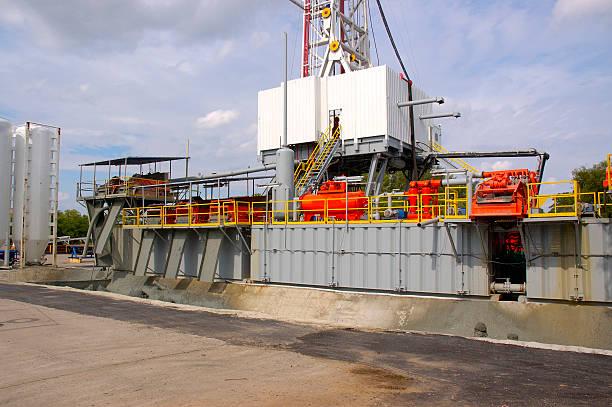AI is a tool that can analyze resumes and applicants to find possible matches. If used too often, it can miss people who don’t conform to a certain mould.
When hiring is a process like the process of sourcing, screening and selection bias could occur. A responsible recruitment process requires ethics-based considerations, clear communication and strong data protection measures.
Benefits
The AI technology enhances the process of recruiting by automatizing repetitive tasks, giving recruiters more time to focus on more valuable tasks. AI technology can also help reduce the cost of hiring, increase efficiency, and help identify the most suitable candidates for the job. It also makes the experience of candidates more enjoyable and comfortable for the user. Chatbots, for instance can arrange interviews and respond to candidates their questions in real-time. Automated feedback systems can provide candidates with more meaningful and constructive assessments, which will help to improve their performance in future interviews for jobs.
AI can be utilized to remove biases in the process of recruiting. AI is, in contrast to recruiters, is completely impartial and doesn’t consider race gender, age, or race when evaluating applicants. This lets companies build more diverse and inclusive teams.
AI-based tools for matching candidates can also help recruiters save time by reducing the number of candidates they shortlist and making sure they are able to are able to meet the requirements for the job. This leads to higher hiring rates and lower turnover. Unilever For instance, is credited by its AI-based recruitment tool with saving them more than 100,000 hours a year. AI matches the skills of candidates to the job requirements, making sure that the new employees are a good fit for the company’s culture and requirements. This increases the likelihood of staying for longer and contributing to the development of the company.
Technologies for Recruitment and Employment
There are a variety of platforms and tools available to aid recruiters in finding the top talent. AI is becoming more well-known in the field of recruitment because of its capability to simplify various processes, including the screening of resumes, sourcing candidates and arranging interviews and the tracking of keywords. AI offers innovative ways to engage with and nurture potential candidates.
Examples include chatbots, video interviews as well as predictive analytics. These tools automatize repetitive tasks and connect recruiters with potential candidates via various channels, and provide more customized communications.
AI integration with new technologies could revolutionize the process of hiring. The combination of AI with blockchain technology, for instance it allows for faster and more secure credential pnj tuyen dung verification and reduces the risk of fraud. Combining AI with VR can create immersive experiences for recruiting, which provide applicants with a clear understanding of the job and its environment prior to applying. Integration of AI with other platforms can help streamline workflows, while automating processes like creating job descriptions and analyzing candidates’ profiles. While AI could make the process of hiring more efficient HR managers must continue to incorporate human input in order to ensure precision and strategic alignment. Relying too heavily on AI that is overly dependent can lead to overly optimistic expectations about the capabilities of AI and an inconsistency of objectives and capabilities to attract the best talent.
Algorithmic Bias In Hiring
AI can be utilized to hire for various reasons however, there are dangers. AI algorithms could be biased accidentally, which can result in hiring discrimination. This is known as algorithmic bias, and happens in the case where the design of an AI system influences its decision-making. It can be caused by various variables, including individual biases between engineers or methods of data collection that are not able to capture certain populations.
If an AI system is trained to look through CVs of former employees for instance it is able to eliminate all information that is associated with females. It could be as easy as having a name that is feminine, or being employed in a female-only college. This could be due to the use of a data set that is not representative enough of the wealthy, accessible groups.
The chance of bias that can arise in the use of AI in the recruitment process can be minimized with proper control. Businesses should establish an entire team to oversee the usage of AI in their hiring process and be prepared to address any allegations that might be raised.
Be aware that AI shouldn’t be considered an instrument to fight discrimination. The final decision on hiring remains the responsibility of human beings. Any bias of any kind is unprofessional and could damage the image of an organization.
AI Recruitment Problems
AI-powered solutions for recruiting can analyze thousands of applications more quickly than human beings. It’s easier to identify the best talent, narrow down candidates, and communicate with them. Certain AI tools for recruitment are capable of aiding in the planning of meetings as well as first-round interviewing. Automating these processes will allow applicants to get continuous support throughout the process of becoming an employee.
It is crucial to ensure that CHROs and recruiters are aware of the risks of AI. These range from algorithmic biases to privacy issues. It is best to work with an RPO who is knowledgeable about the use of technology in HR and stays current with the most recent AI laws.
AI will reduce bias in hiring by sifting talent and screening equally. It can also make sure that only the top candidates are selected for interviews. Fullen states that it is crucial for recruiters to maintain the control over the process of interviewing and be able to scrutinize the AI’s decision-making process. They could lose out on skilled candidates if they fail to take this step. The AI will eliminate overstated CVs at an early stage of the process.




